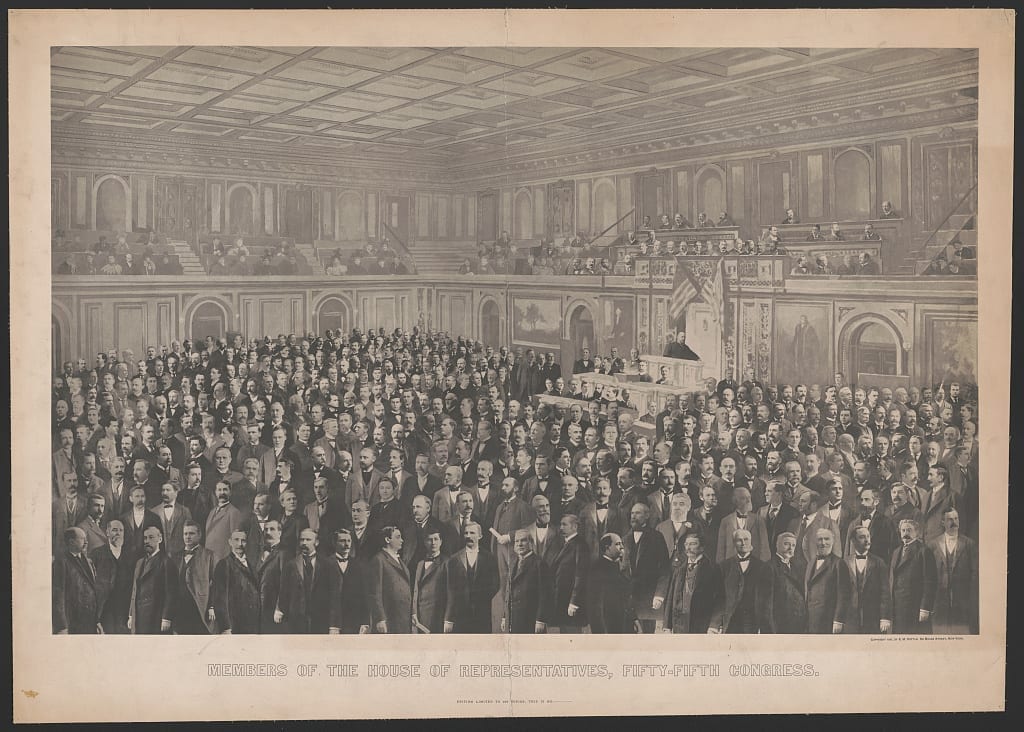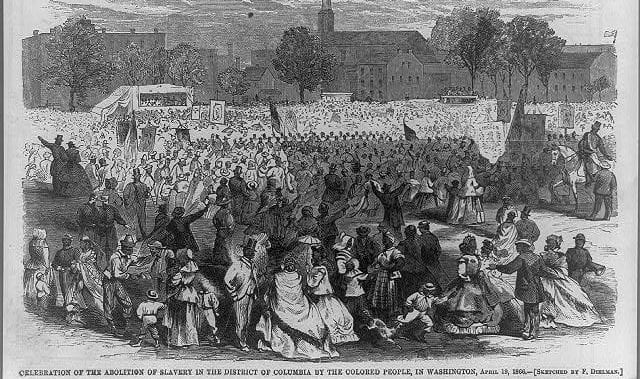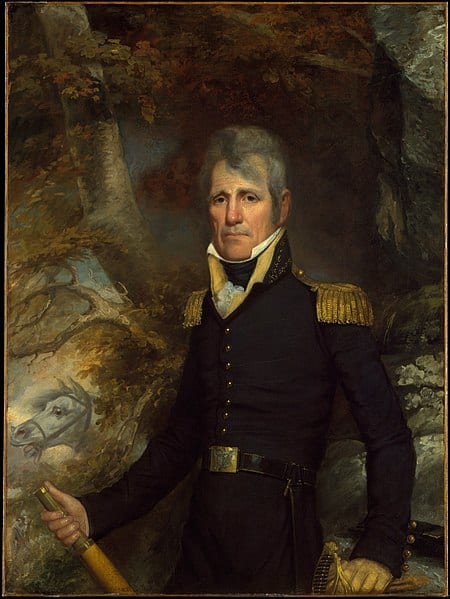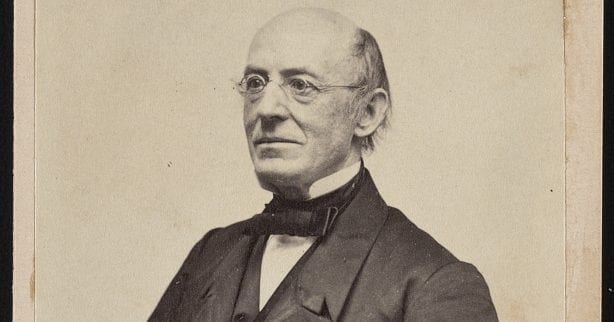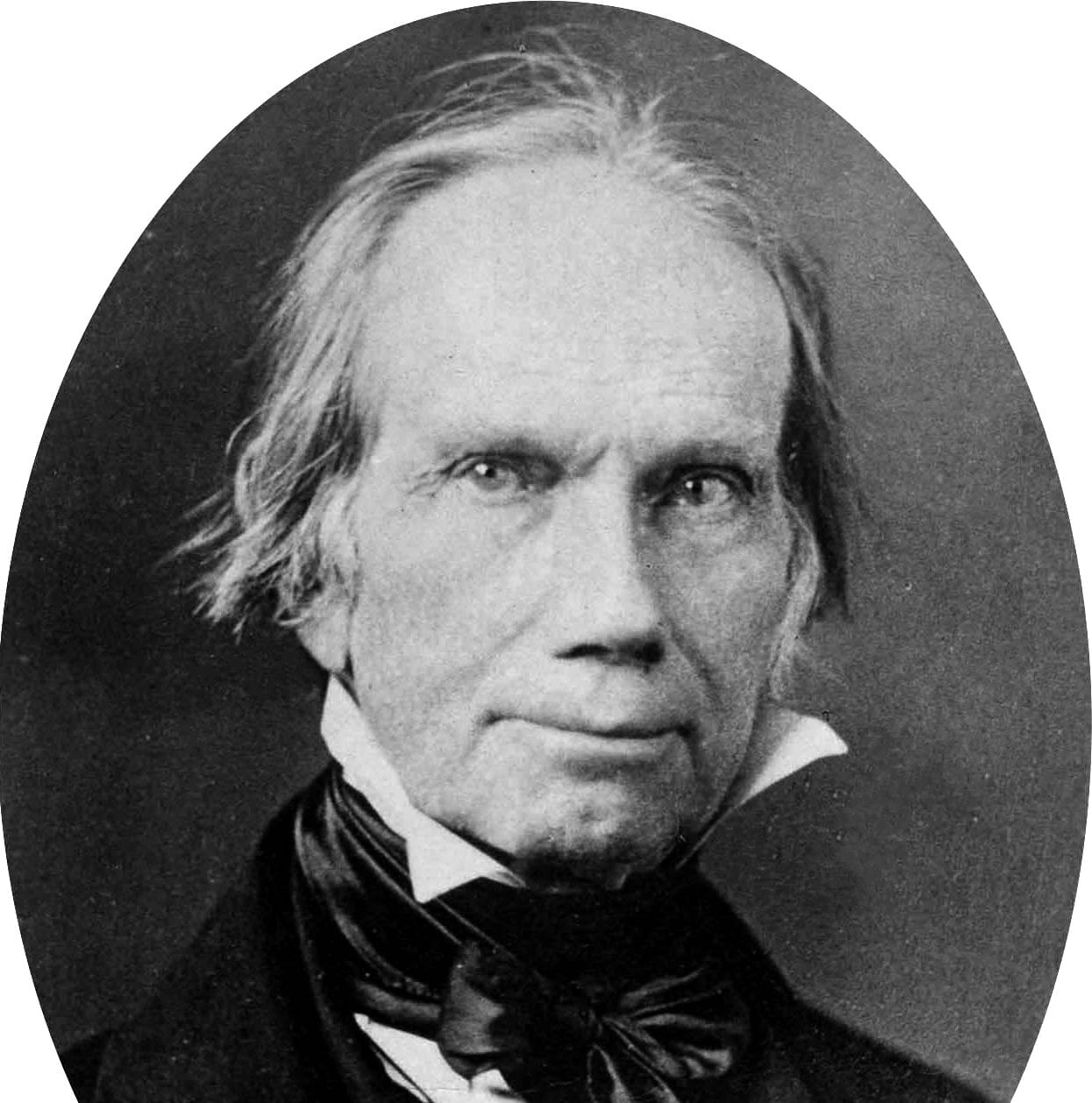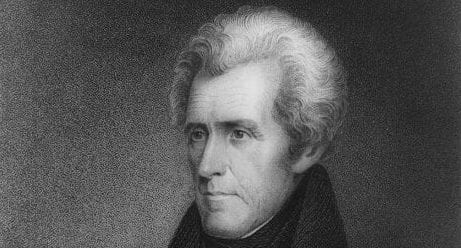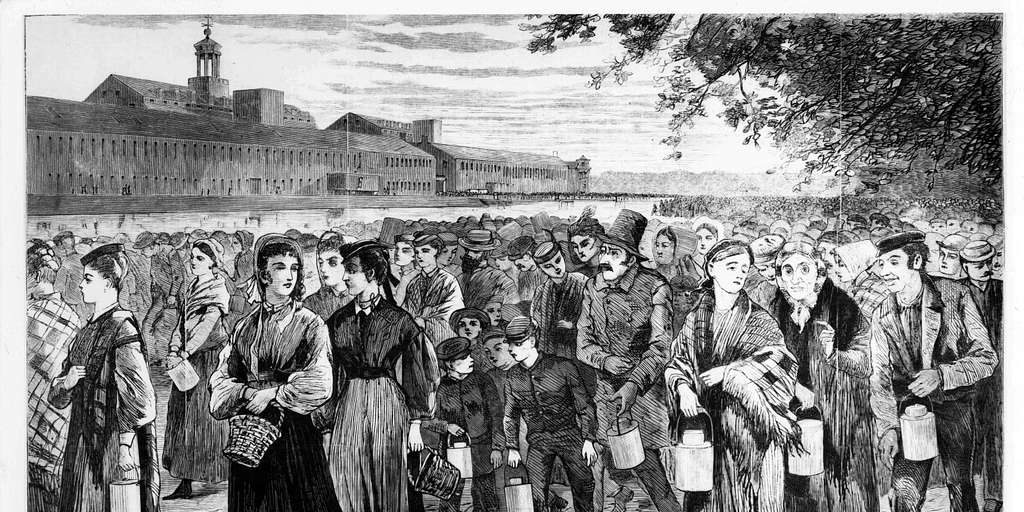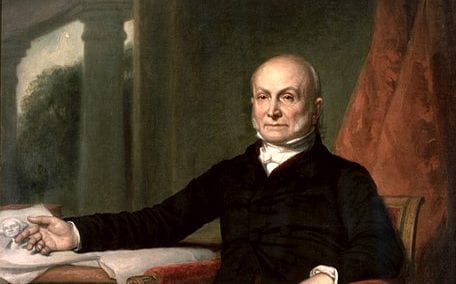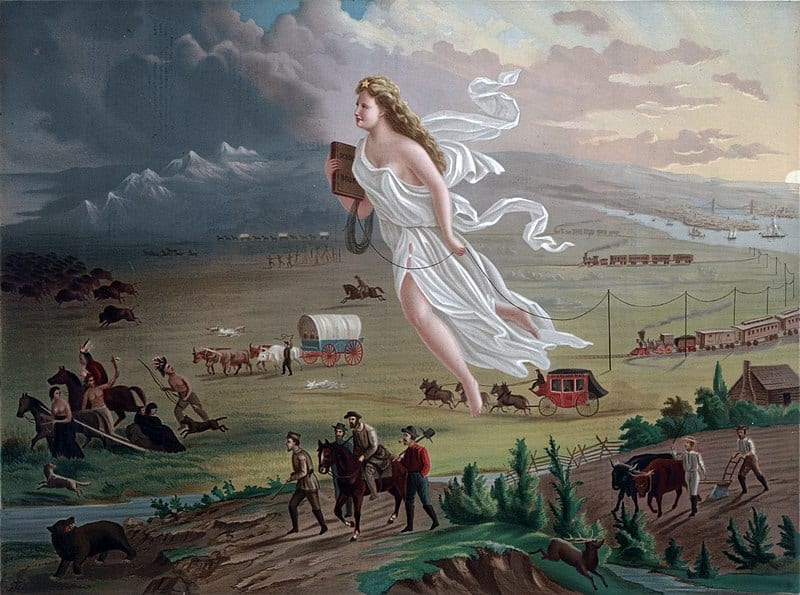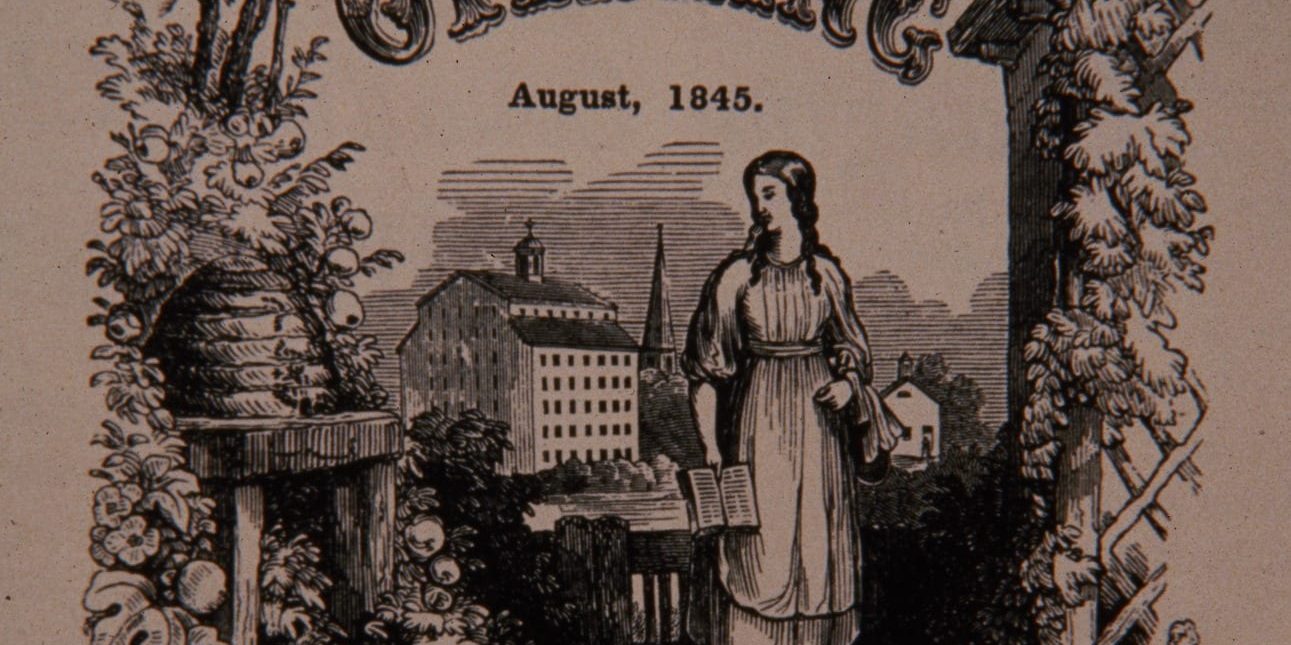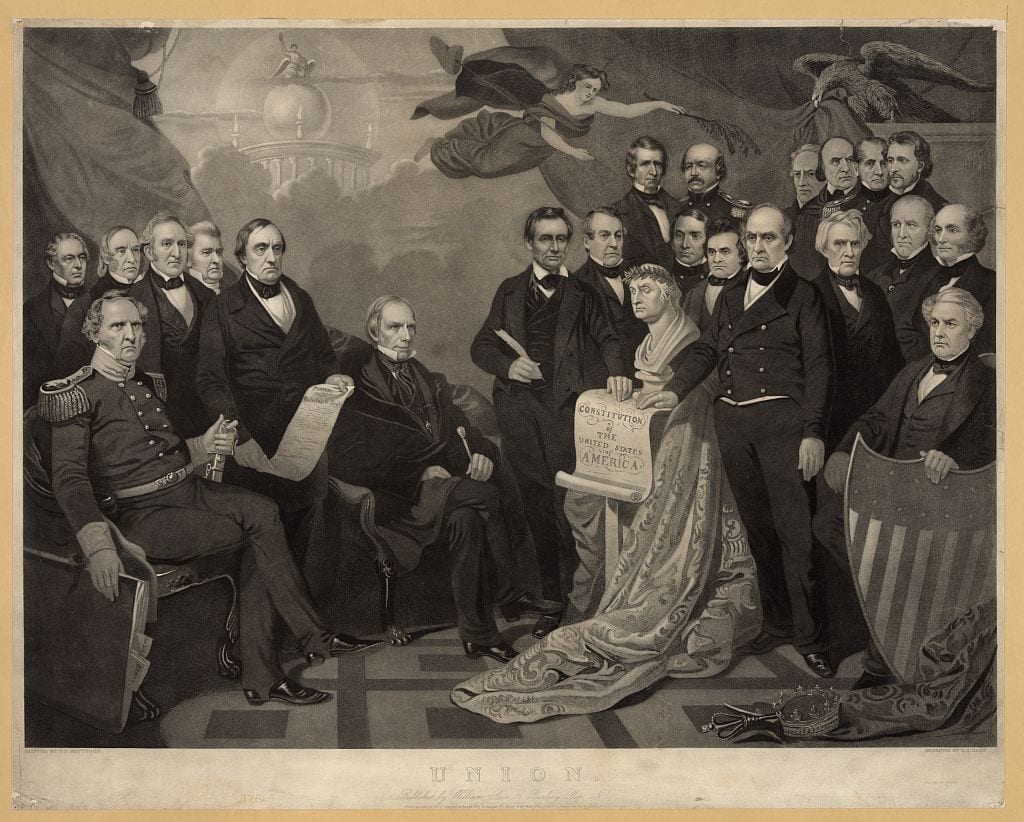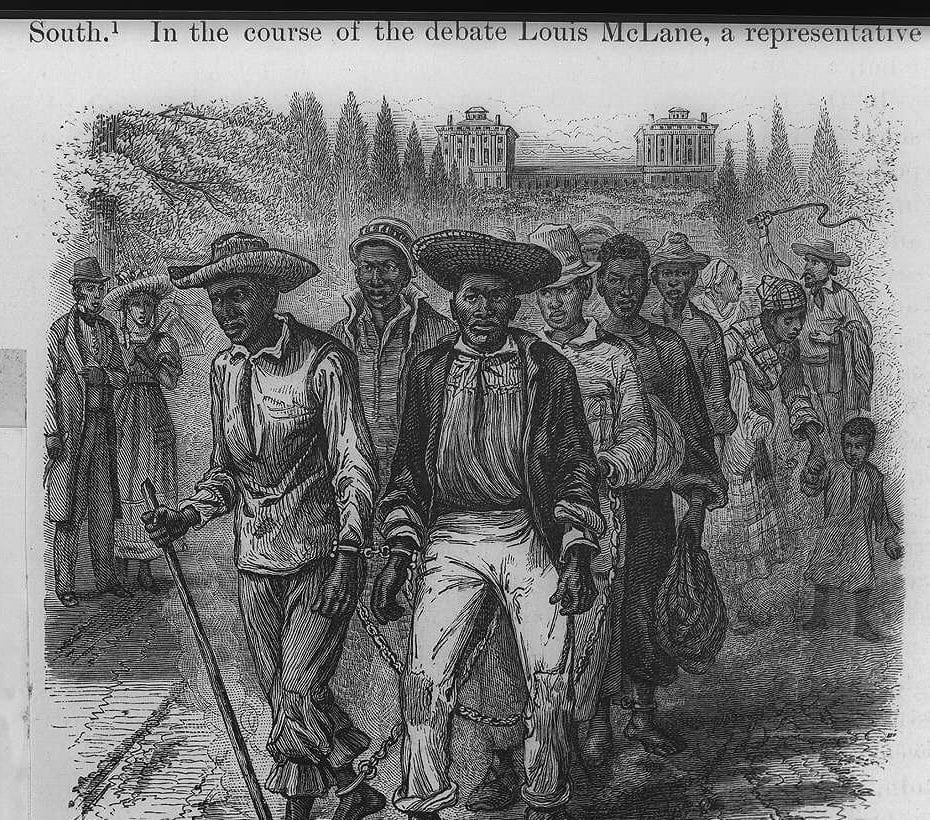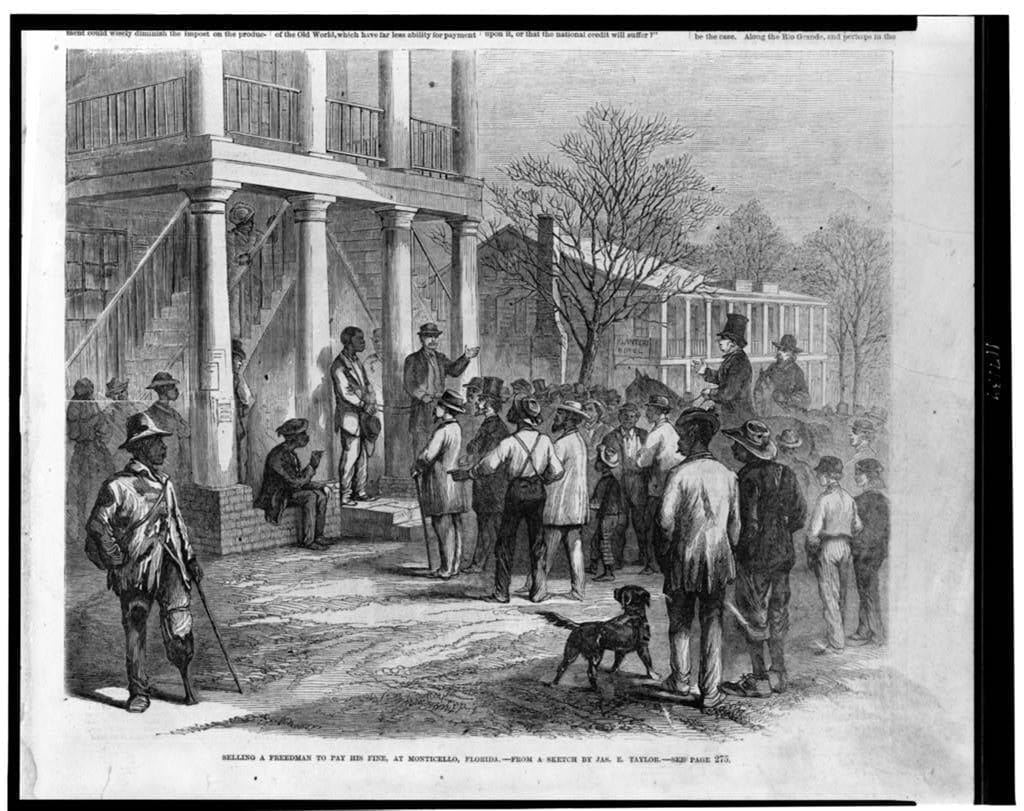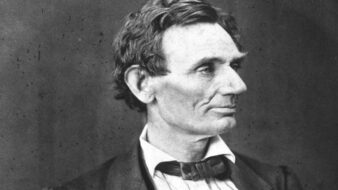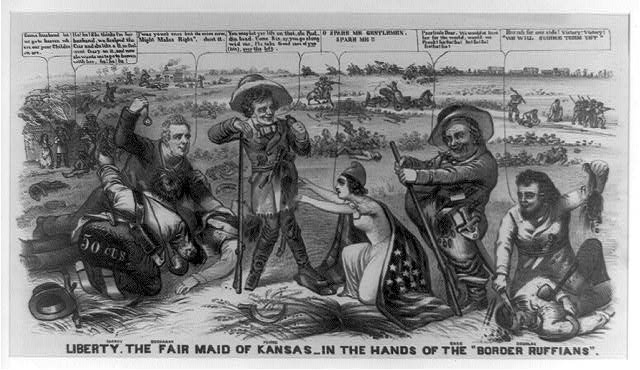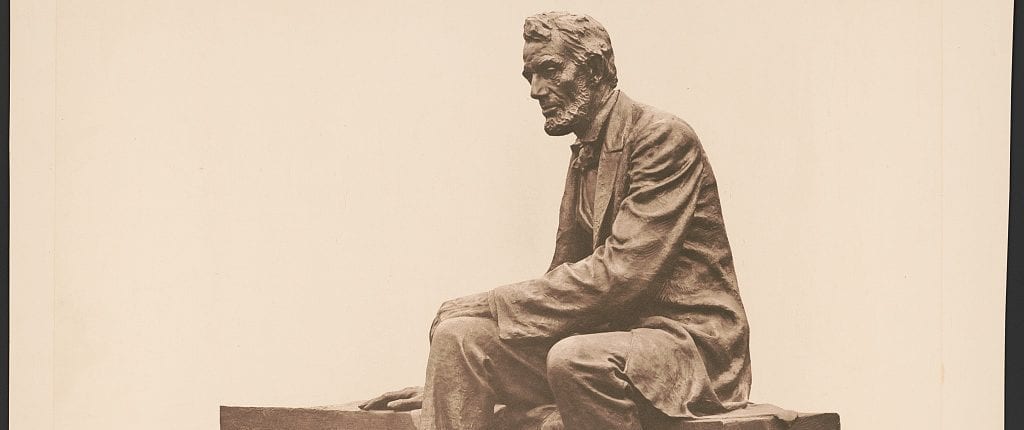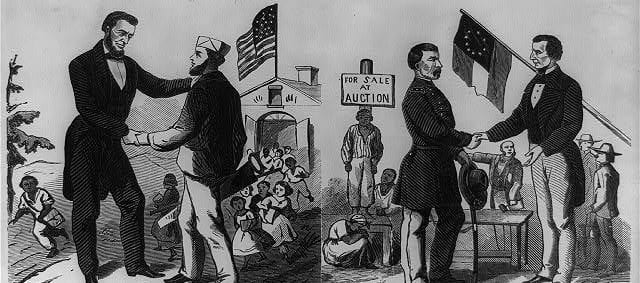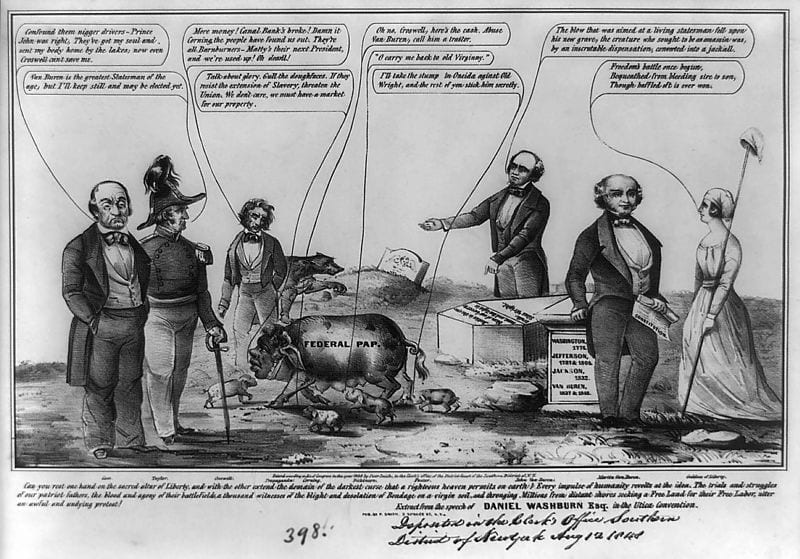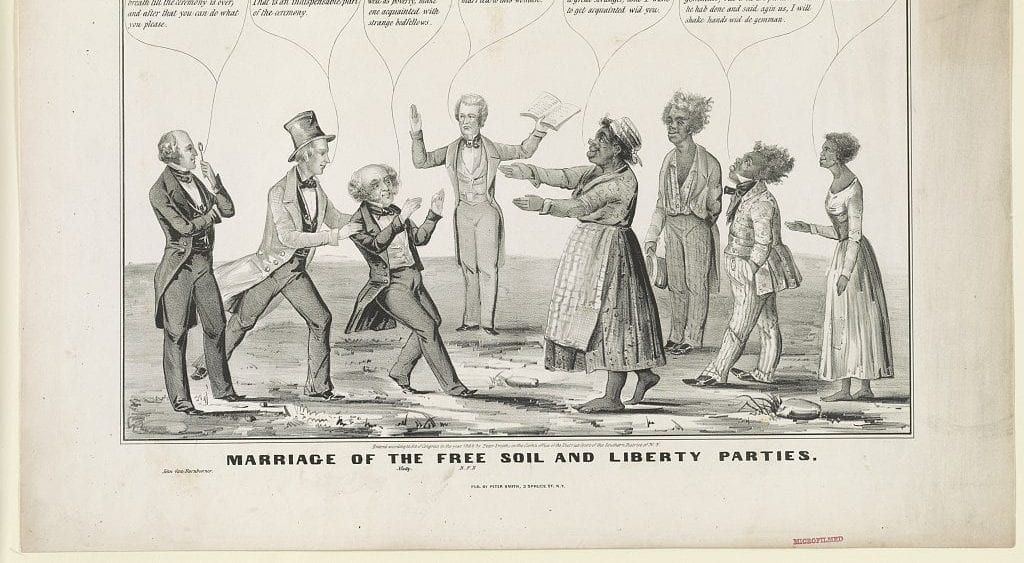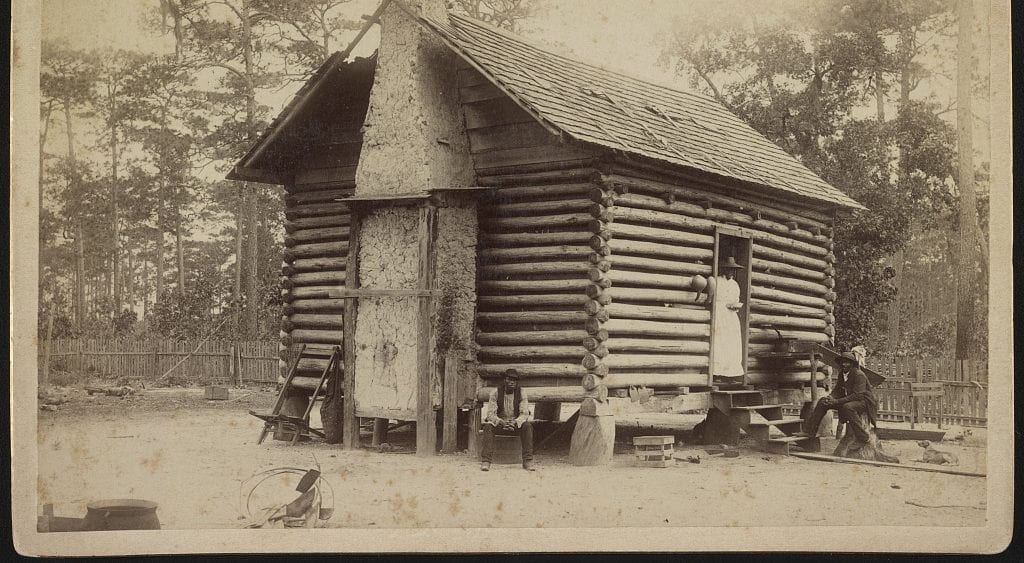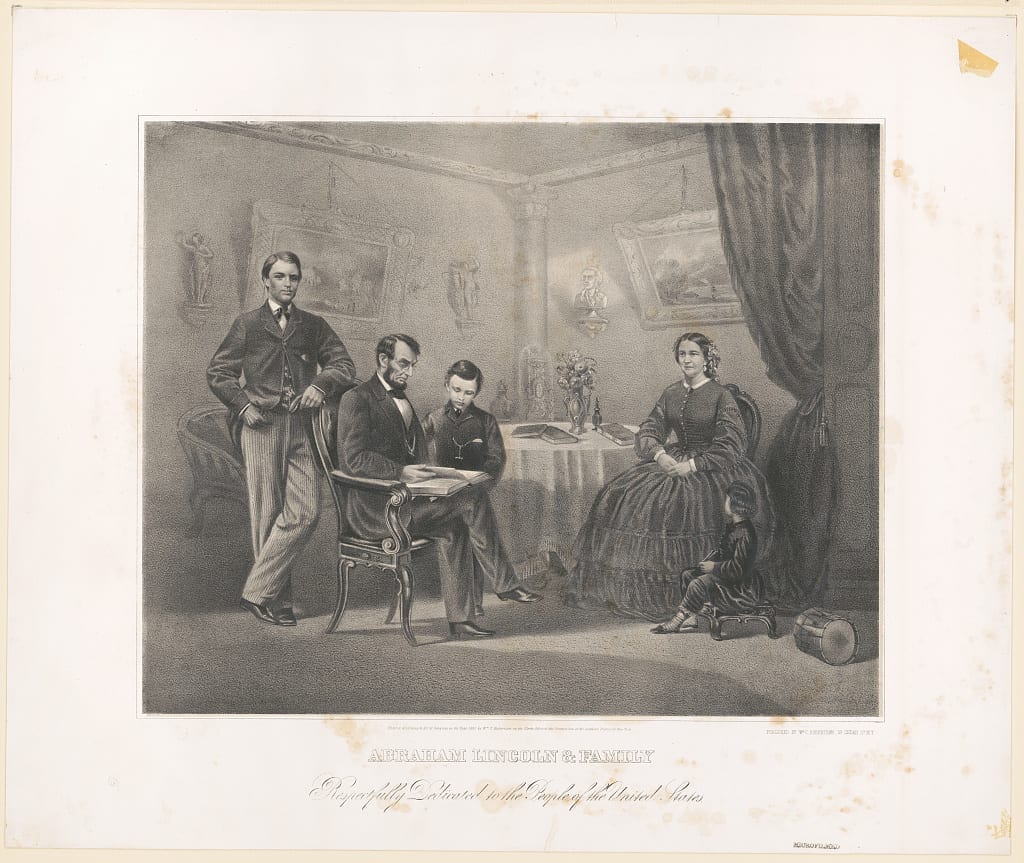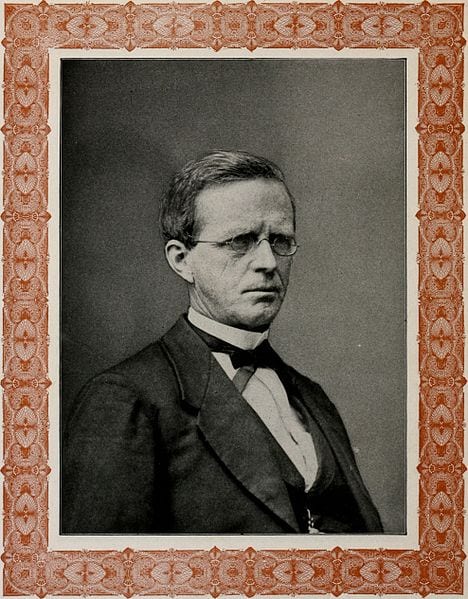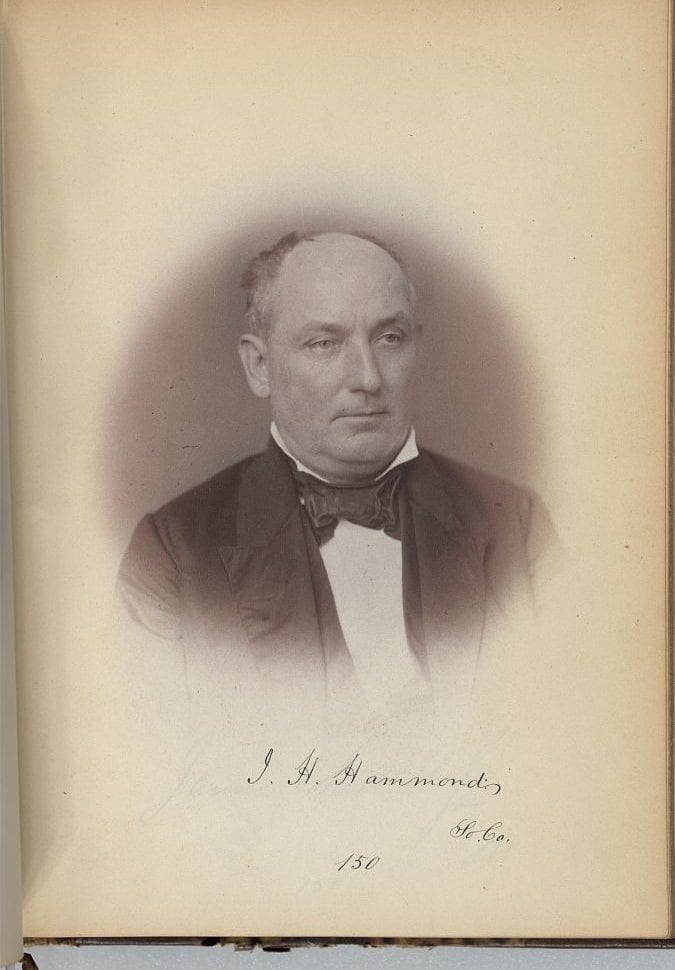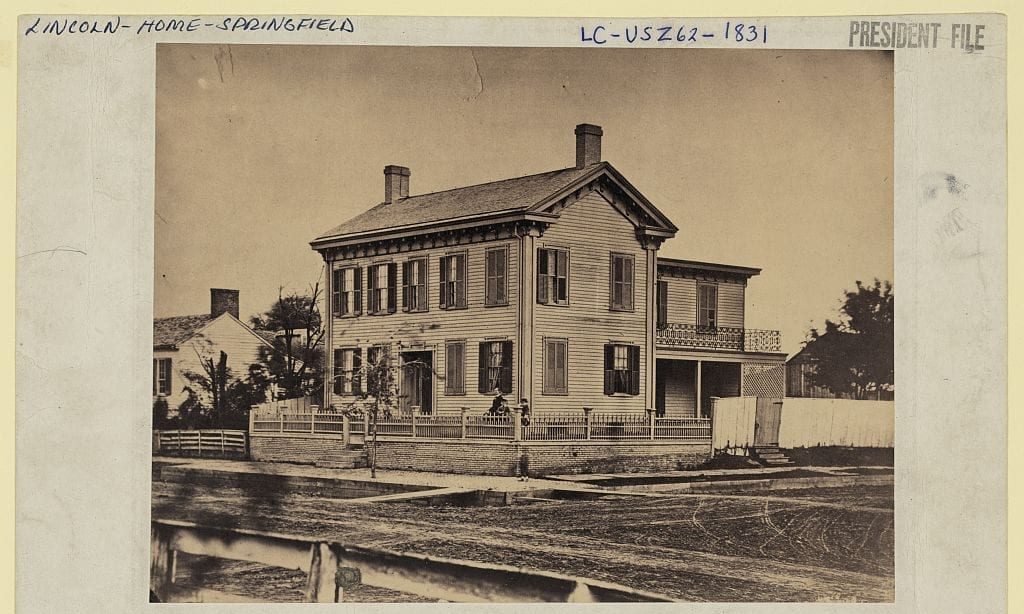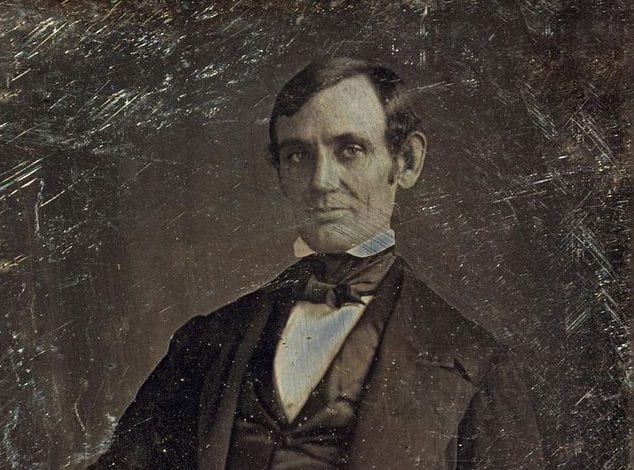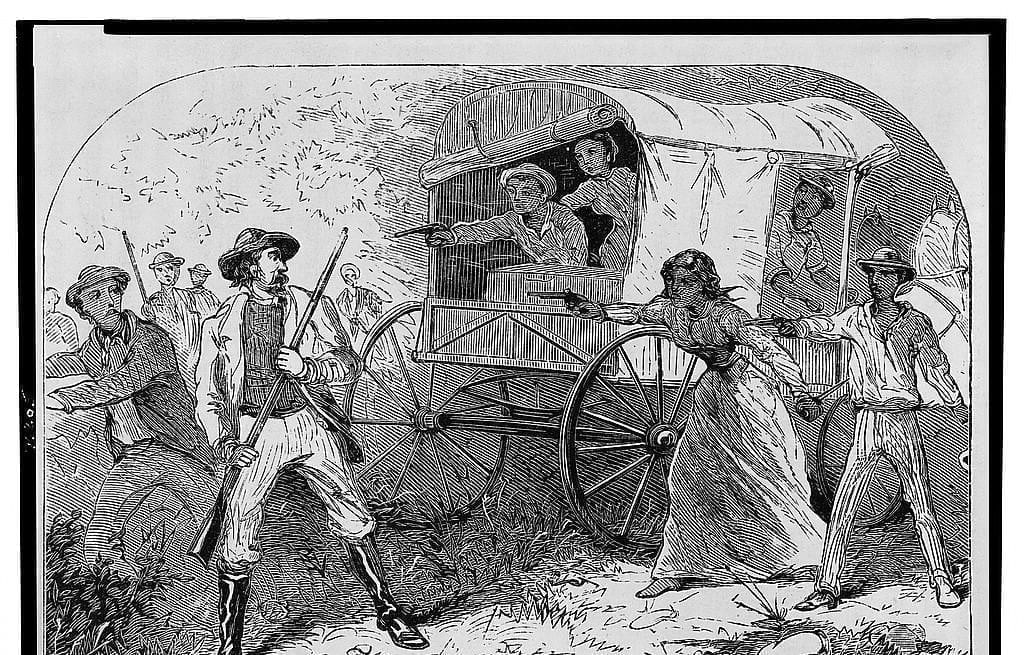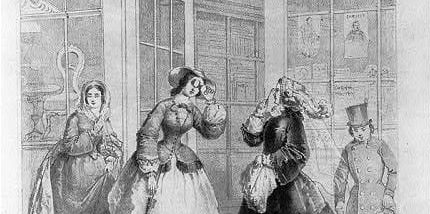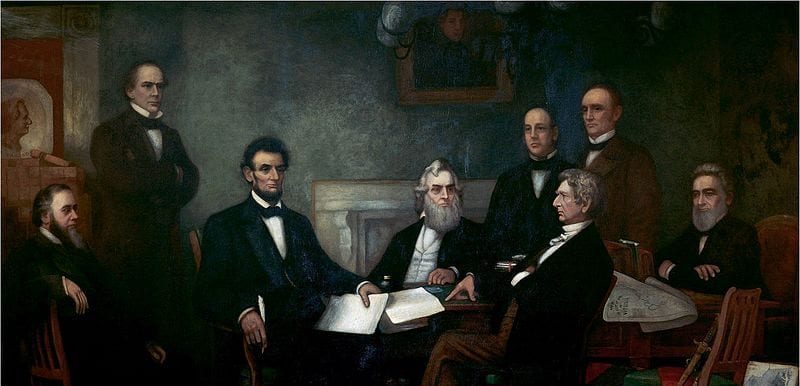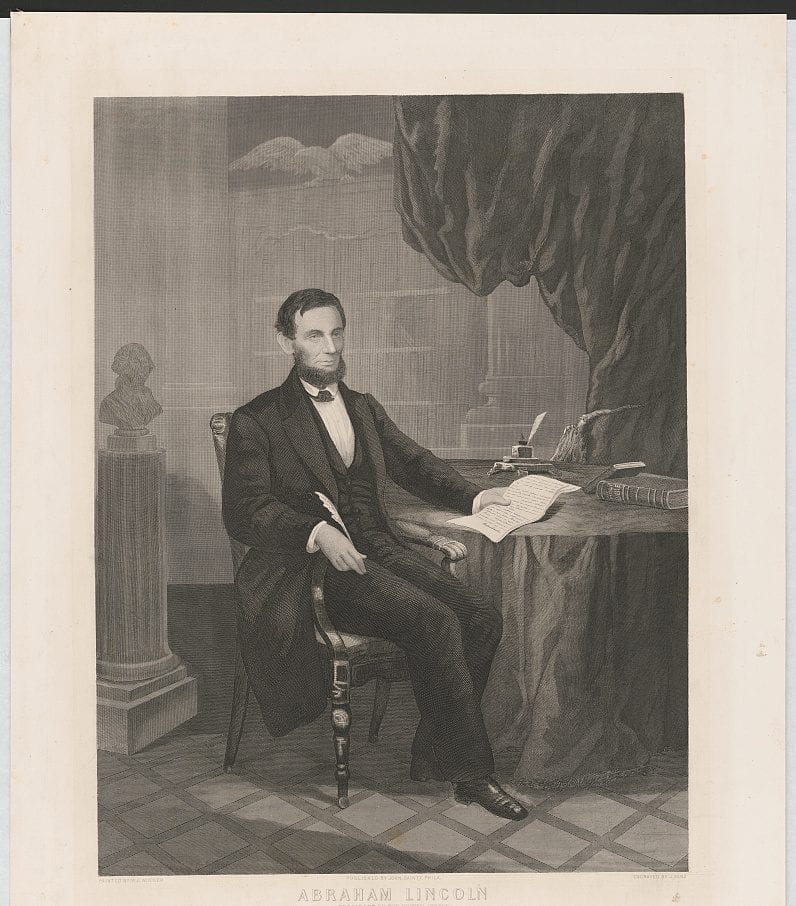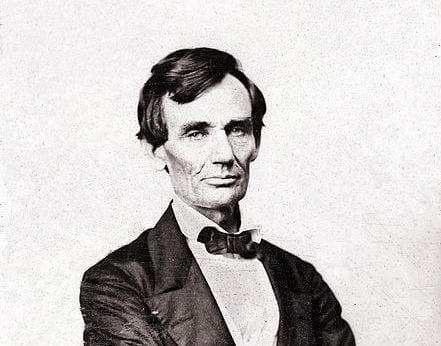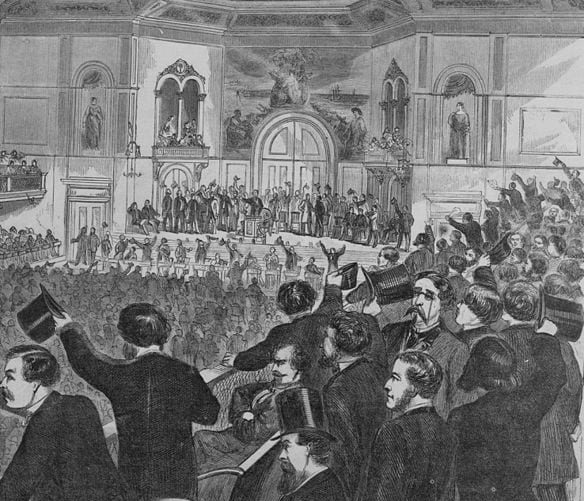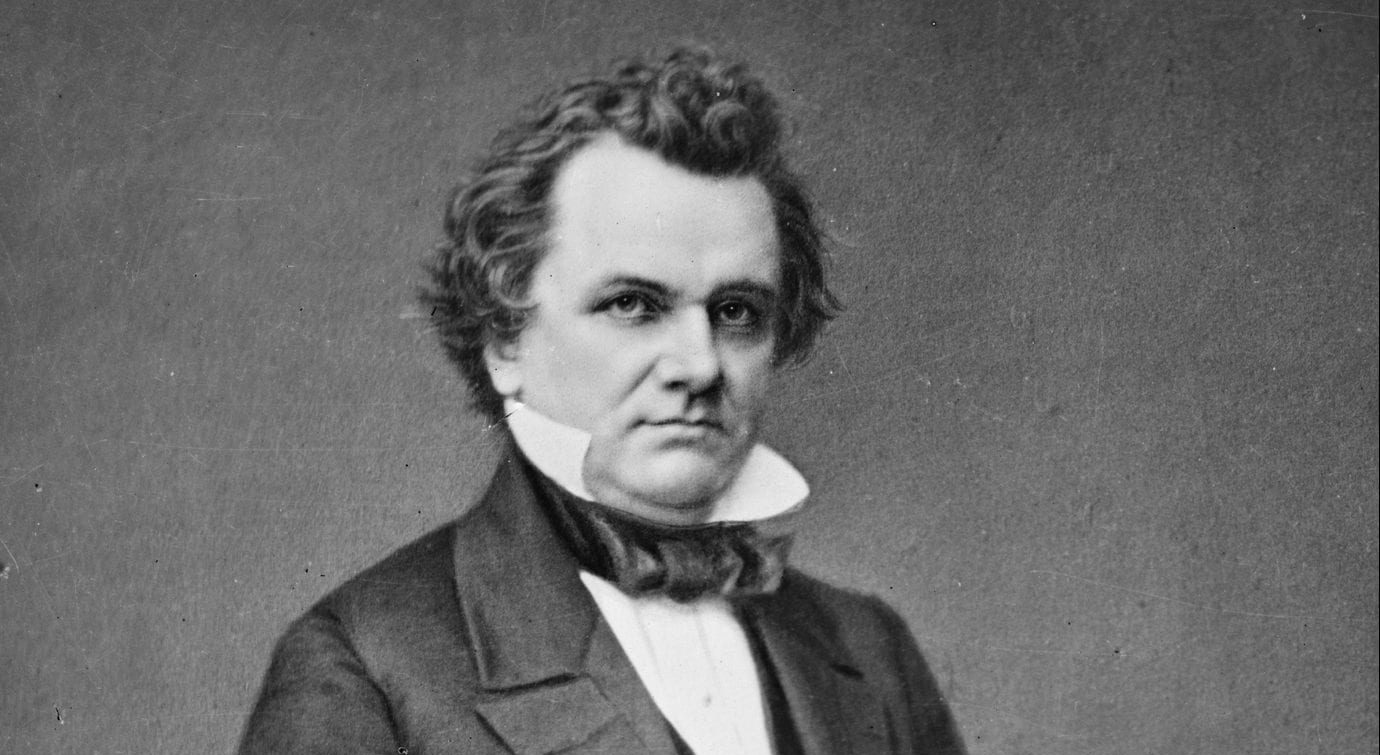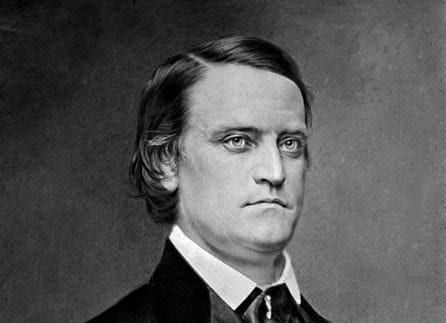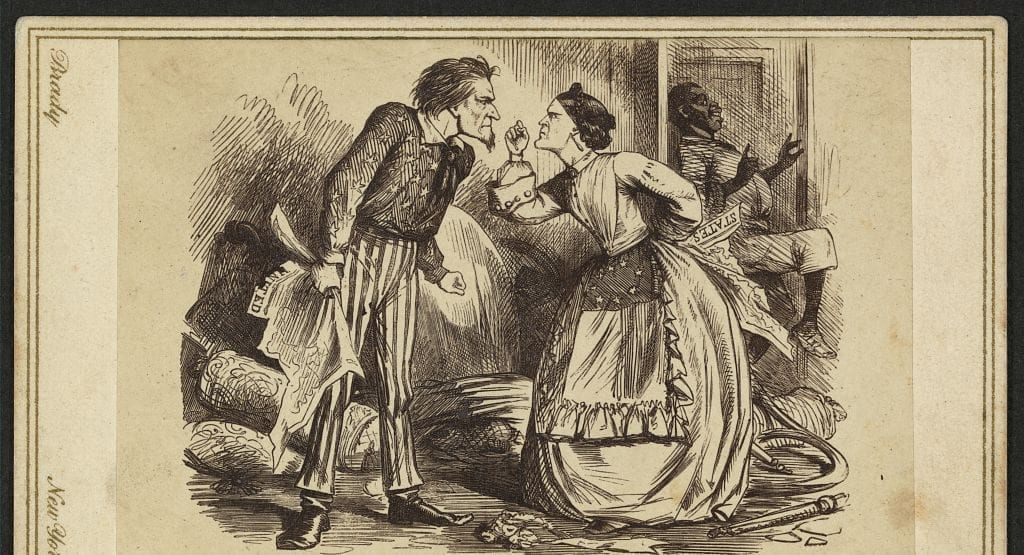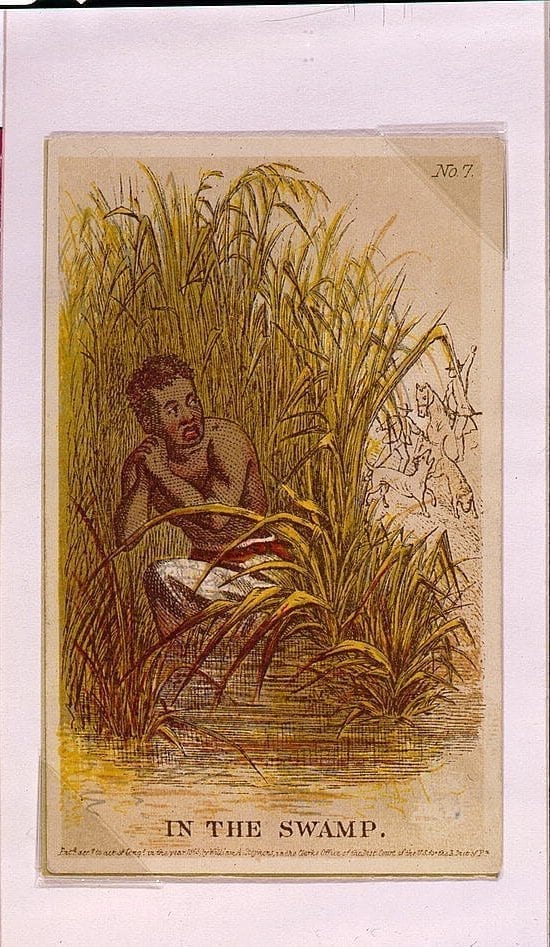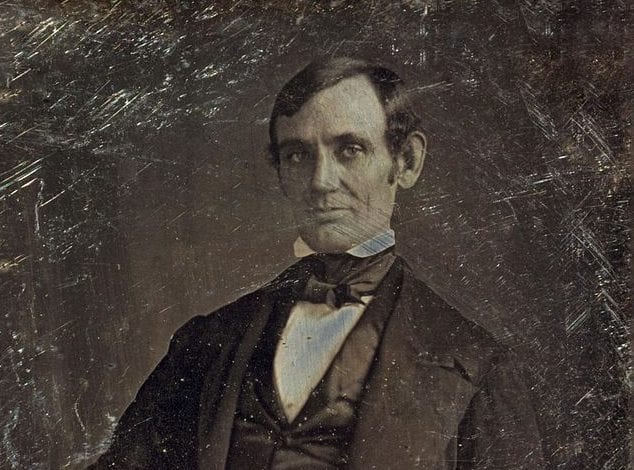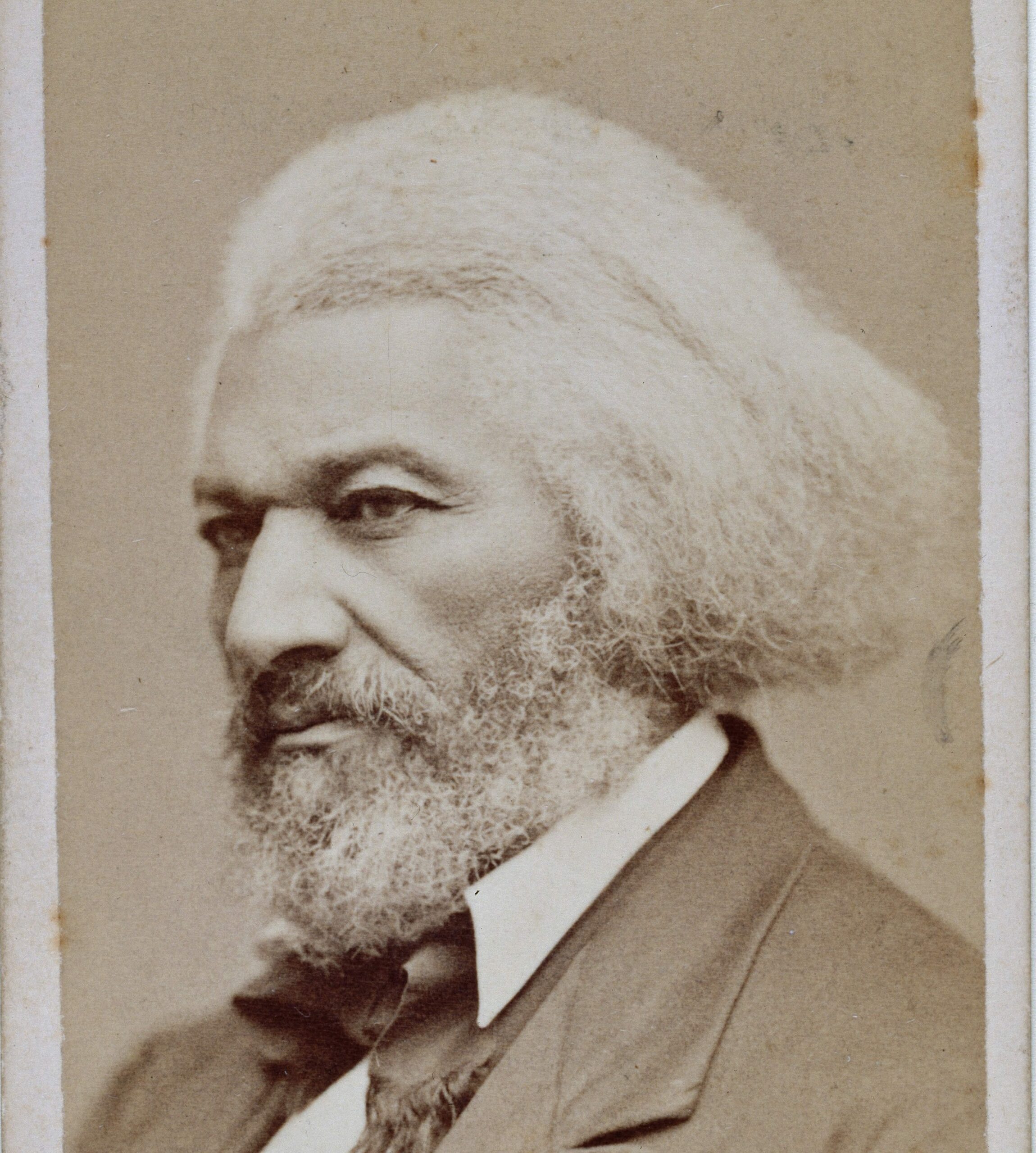


Introduction
The Democratic Party first met in Charleston, South Carolina and, failing to come to a consensus, later in Baltimore, Maryland, where it eventually nominated for president Stephen A. Douglas, Abraham Lincoln’s former rival in the 1858 Illinois Senatorial election and the author of the Kansas-Nebraska Act (“House Divided” Speech (1858); “Homecoming” Speech at Chicago (1858)). But the delegates from the Lower South, bolstered by the recent Supreme Court ruling in the Dred Scott case (1857), refused to accept Douglas’s popular sovereignty compromise on the principle that slavery was right and rejected his selection. They immediately withdrew and nominated a hardline pro-slavery advocate, John C. Breckinridge of Kentucky. To complicate matters further, a fourth candidate entered the race: Senator John Bell from Tennessee was nominated by the Constitutional Union Party, composed of ex-Whigs and former members of the American or “Know-Nothing” Party. With the Democratic Party split over the issue of slavery, the rejuvenated Republicans sensed that victory was near. The stage was now set for the most important election in American history.
We reproduce here the 1860 platform in its entirety and the portion of the 1856 platform that deals with slavery, because the 1860 nominating convention unanimously adopted the 1856 platform.
Source: 1860 Democratic Party Platform, online by Gerhard Peters and John T. Woolley, The American Presidency Project, https://www.presidency.ucsb.edu/node/273172 and 1856 Democratic Party Platform, online by Gerhard Peters and John T. Woolley, The American Presidency Project, https://www.presidency.ucsb.edu/node/273169. The American Presidency Project used the first day of the national nominating conventions as the “date” of the platforms since the original documents are undated.
The 1860 Platform
- Resolved, that we, the Democracy of the Union in Convention assembled, hereby declare our affirmance of the resolutions unanimously adopted and declared as a platform of principles by the Democratic Convention at Cincinnati, in the year 1856, believing that Democratic principles are unchangeable in their nature, when applied to the same subject matters; and we recommend, as the only further resolutions, the following:
- Inasmuch as difference of opinion exists in the Democratic Party as to the nature and extent of the powers of a territorial legislature, and as to the powers and duties of Congress, under the Constitution of the United States, over the institution of slavery within the territories,
Resolved, that the Democratic Party will abide by the decision of the Supreme Court of the United States upon these questions of Constitutional law.[1]
- Resolved, that it is the duty of the United States to afford ample and complete protection to all its citizens, whether at home or abroad, and whether native or foreign born.
- Resolved, that one of the necessities of the age, in a military, commercial, and postal point of view, is speedy communication between the Atlantic and Pacific states; and the Democratic Party pledge such constitutional government aid as will insure the construction of a railroad to the Pacific coast, at the earliest practicable period.
- Resolved, that the Democratic Party is in favor of the acquisition of the Island of Cuba on such terms as shall be honorable to ourselves and just to Spain.
- Resolved, that the enactments of the state legislatures to defeat the faithful execution of the Fugitive Slave Law, are hostile in character, subversive of the Constitution, and revolutionary in their effect.
- Resolved, that it is in accordance with the interpretation of the Cincinnati platform,[2] that during the existence of the territorial governments the measure of restriction, whatever it may be, imposed by the federal Constitution on the power of the territorial legislature over the subject of the domestic relations, as the same has been, or shall hereafter be finally determined by the Supreme Court of the United States, should be respected by all good citizens, and enforced with promptness and fidelity by every branch of the general government.
The 1856 Platform
Resolved, that we reiterate with renewed energy of purpose the well-considered declarations of former conventions upon the sectional issue of domestic slavery, and concerning the reserved rights of the states.
- that Congress has no power under the Constitution, to interfere with or control the domestic institutions of the several states, and that such states are the sole and proper judges of everything appertaining to their own affairs, not prohibited by the Constitution; that all efforts of the abolitionists, or others, made to induce Congress to interfere with questions of slavery, or to take incipient steps in relation thereto, are calculated to lead to the most alarming and dangerous consequences; and that all such efforts have an inevitable tendency to diminish the happiness of the people and endanger the stability and permanency of the Union, and ought not to be countenanced by any friend of our political institutions.
- that the foregoing proposition covers, and was intended to embrace the whole subject of slavery agitation in Congress; and therefore, the Democratic Party of the Union, standing on this national platform, will abide by and adhere to a faithful execution of the acts known as the compromise measures,[3] settled by the Congress of 1850; “the act for reclaiming fugitives from service or labor,” included; which act being designed to carry out an express provision of the Constitution, cannot, with fidelity thereto, be repealed, or so changed as to destroy or impair its efficiency.
- that the Democratic Party will resist all attempts at renewing, in Congress or out of it, the agitation of the slavery question under whatever shape or color the attempt may be made.
- that the Democratic Party will faithfully abide by and uphold, the principles laid down in the Kentucky and Virginia resolutions of 1798, and in the report of Mr. Madison to the Virginia Legislature in 1799;[4] that it adopts those principles as constituting one of the main foundations of its political creed, and is resolved to carry them out in their obvious meaning and import.
And that we may more distinctly meet the issue on which a sectional party, subsisting exclusively on slavery agitation, now relies to test the fidelity of the people, North and South, to the Constitution and the Union—
- Resolved, that claiming fellowship with, and desiring the co-operation of all who regard the preservation of the Union under the Constitution as the paramount issue—and repudiating all sectional parties and platforms concerning domestic slavery, which seek to embroil the states and incite to treason and armed resistance to law in the territories; and whose avowed purposes, if consummated, must end in civil war and disunion, the American Democracy recognize and adopt the principles contained in the organic laws establishing the territories of Kansas and Nebraska as embodying the only sound and safe solution of the “slavery question” upon which the great national idea of the people of this whole country can repose in its determined conservatism of the Union— non-interference by Congress with slavery in state and territory, or in the District of Columbia.
- that this was the basis of the compromises of 1850 confirmed by both the Democratic and Whig parties in national conventions—ratified by the people in the election of 1852, and rightly applied to the organization of territories in 1854.
- that by the uniform application of this Democratic principle to the organization of territories, and to the admission of new states, with or without domestic slavery, as they may elect—the equal rights, of all the states will be preserved intact; the original compacts of the Constitution maintained inviolate; and the perpetuity and expansion of this Union insured to its utmost capacity of embracing, in peace and harmony, every future American state that may be constituted or annexed, with a republican form of government.
Resolved, that we recognize the right of the people of all the territories, including Kansas and Nebraska, acting through the legally and fairly expressed will of a majority of actual residents, and whenever the number of their inhabitants justifies it, to form a Constitution, with or without domestic slavery, and be admitted into the Union upon terms of perfect equality with the other states.
Resolved, finally, that in view of the condition of popular institutions in the Old World (and the dangerous tendencies of sectional agitation, combined with the attempt to enforce civil and religious disabilities against the rights of acquiring and enjoying citizenship, in our own land) a high and sacred duty is devolved with increased responsibility upon the Democratic Party of this country, as the party of the Union, to uphold and maintain the rights of every state, and thereby the Union of the states; and to sustain and advance among us constitutional liberty, by continuing to resist all monopolies and exclusive legislation for the benefit of the few, at the expense of the many, and by a vigilant and constant adherence to those principles and compromises of the Constitution, which are broad enough and strong enough to embrace and uphold the Union as it was, the Union as it is, and the Union as it shall be, in the full expansion of the energies and capacity of this great and progressive people.
Proclamation
June 09, 1856
Conversation-based seminars for collegial PD, one-day and multi-day seminars, graduate credit seminars (MA degree), online and in-person.














